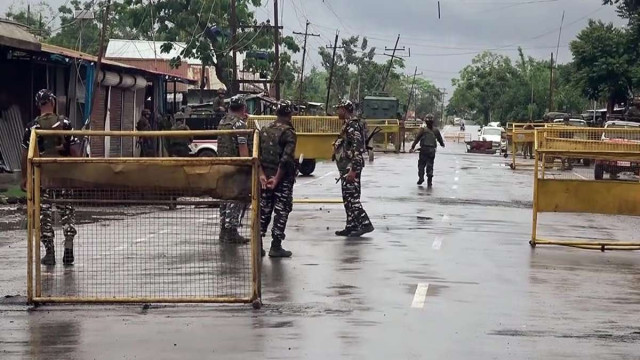Manipur Government Implements "No Work, No Pay" Policy for State Workers
- Posted on March 7, 2024
- Government and Policy
- By Arijit Dutta
- 1054 Views
The Manipur government has implemented a "no work, no pay" policy for its employees who are absent without valid reasons. The directive, outlined in an office memorandum, applies to those unable to attend due to law and order issues. Deputy commissioners will oversee compliance and report any misconduct.
 Image Source -www.english.pardaphash.com
Image Source -www.english.pardaphash.com
The
Manipur
government, on March 6, unveiled a stringent measure dubbed the "no
work, no pay" policy, targeting government employees exhibiting absenteeism
without valid justifications. The policy was introduced through an office
memorandum released by the Department of Personnel and Administrative Reforms.
Under
this policy, employees who fail to attend their designated workplaces due to
prevailing law and order issues within the state will be attached to Deputy
Commissioners, line departments, or field-level offices. They are mandated to
discharge assigned duties from these alternate locations. Failure to comply
with this arrangement will trigger salary deductions, adhering strictly to the
"no work, no pay" principle.
The
decision to implement such a policy stemmed from growing concerns regarding
absenteeism among government employees, particularly in light of reported
incidents where officials were either not attending their assigned offices or
neglecting their duties. To tackle this issue head-on, the circular emphasizes
the need for stricter monitoring and accountability mechanisms.
To
ensure effective implementation, Deputy Commissioners and heads of departments
have been tasked with maintaining detailed attendance records for the attached
officials. Furthermore, any instances of misconduct or improper behavior will
be documented and reported to the relevant authorities responsible for salary
disbursement.
This initiative underscores the Manipur government's commitment to fostering a culture of punctuality, responsibility, and productivity within its workforce. By instituting consequences for unauthorized absences, the government aims to instill a greater sense of accountability among employees while also ensuring the smooth functioning of essential public services.
Also Read: Kim Jong Un Of North Korea Urges Increased Military Readiness Against US And South Korea
Moreover,
the policy serves as a deterrent against absenteeism, sending a clear message
that such behavior will not be tolerated. It reflects the government's
determination to uphold efficiency and discipline within the public sector,
ultimately benefiting both employees and citizens alike.
In essence, the introduction of the "no work, no pay" policy represents a significant step towards reforming the work culture within the Manipur government. It signals a proactive approach toward addressing longstanding issues of absenteeism and non-compliance, laying the groundwork for a more accountable and productive bureaucracy.



